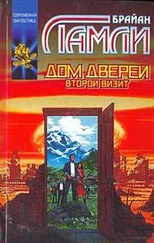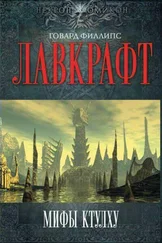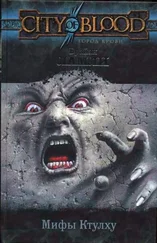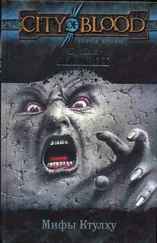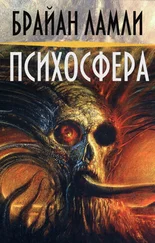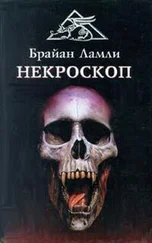It seemed to Khai that he floated in the void between golden suns, where a myriad motes of glittering gold dust blinded him and baffled his senses. The sensation lasted for a moment only, and then, out of the silence, a Great Voice seemed to speak— not to Khai but to Other Beings of equal potency.
He heard no words, neither saw nor yet felt anything at all, and yet somehow he was party to a conversation. There were Beings in that shape in the sky, certainly, and indeed They recognized Khasathut. But They saw him as an error—a failed experiment—that and nothing more. There was puzzlement, too, that such a creature could ever have come to power, could have caused to happen the earthshaking events whose reverberations had been detected at the very corners of space and time, calling Them down from far journeyings, from temporal and trans-dimensional investigations of times and spaces.
Then … a decision was made. Khai knew it, and so did Khasathut.
“No!” the naked monster’s mouth formed silent words as the golden beam from above narrowed to enclose him and exclude Khai. “No, you can’t! I’m one of yours. I’m one of—”
For a moment, the beam brightened to such an intensity that Khai threw up his hands before his face. Then that solid-seeming rod of golden light blinked out and the brightly glowing spot on the flying pyramid’s base quickly dulled and faded into its soft yellow surroundings. The vast mass in the sky began slowly to revolve, rising straight up into thin air until it reached a certain altitude. There it paused and its revolutions ceased, and Khai took his hands from his eyes and craned his neck to gaze up at it. Then he looked at the small heap of yellow dust at the summit’s center—dust which had recently been the Pharaoh Khasathut. …
The wind sprang up again, blowing Khasathut’s last remains in Khai’s face. He choked and covered his nose and mouth, then turned and stumbled down the steps, going back the way he had come as quickly as he could.
At the foot of the ramp, Manek waited with a commandeered chariot. He bundled Khai onto his vehicle’s platform and lashed his horses to a gallop, and a few minutes later they clattered out through the west gate and raced for dried up mud flats which were once a swamp.
Eight miles from the city’s walls, a low hill rose up from mud baked hard as brick. Recently it had been green, grown with trees, grasses and ferns, a paradise of living things. Now it was dead. A few blackened stumps littered the crest where Manek brought the chariot to a halt. Many warriors were already there—horsemen and charioteers, mainly—waiting for their generals; and for … something else.
The panic was largely over now. Between the city and the hill streams of chariots, horsemen and foot soldiers like ants on the march still hurried west, leaving the doomed city behind them, not looking back. The ordinary citizens of Asorbes were there, too, many thousands of them, loaded down with their belongings and fleeing from the ravages of war. Khai and Manek had driven through them, urging them on, but now they waited as the army caught up. In another half-hour, there would not be a single soldier of Ashtarta’s forces within five miles of Asorbes—which was just as well, Khai thought, for something was surely going to happen. No one said anything, but everyone knew it. It was in the air, a tension, an electric feeling. And the eyes of each and every soldier on the hill were now locked on Asorbes and the golden shape that stood in the sky over the city like some silent sentinel.
After a long while, Khai said to Manek, “It will be soon now.”
They stood side by side on the hill, amidst thousands of bloodied, battered warriors whose triumph was all but forgotten. All was unnaturally quiet. Even the clatter of late-arriving chariots, the whinnying of lathered horses, the moaning of wounded men and the low mutterings of chiefs and captains as they counted their losses seemed muted.
“What is it, Khai?” Manek asked, his eyes on the distant shape in the sky, a frown etched deep in his forehead. “What will it be?”
For answer, Khai shook his head, then stiffened as he focused his eyes on sudden motion about the vast vessel hovering over the deserted city. The golden pyramid seemed to be pulsating, glowing bright and pale in an ever quickening cycle. A shimmering yellow haze, similar to the beam Khai had experienced at first hand, but more diffuse and spreading out at a wider angle, fell like a diaphanous curtain from the pyramid’s base over the entire city, covering it wall to wall. The pulsating continued, quickened, and the massive vessel began to lift into the sky. Amazingly, impossibly, most of Asorbes began to lift with it!
Caught in tractors of fantastic power, vast segments of the city’s walls broke loose and shuddered into the sky; towers, buildings and temples became airborne; anything that was not deeply rooted in the bedrock of the earth itself was slowly, irresistibly drawn skyward. But most of the power was concentrated centrally, on Khasathut’s tomb, on the pyramid itself. …
A vast sigh—a concerted gasp of awe and disbelief—went up from thousands of throats as finally that tremendous monument rocked and broke free of its base and millions of tons of stone were drawn bodily aloft. It seemed as if every man of Ashtarta’s army held his breath then, as the city of Asorbes rose up and up. And as the golden pyramid exerted its incredible energy on the uprooted city, so that raw power was made visible in the lightnings that leapt between sky-floating stone and scarred and pitted earth.
Huge tongues of fire licked at the ground in electrical greed, and dust clouds like the dark breath of demons rose everywhere. A low rumble, rapidly growing louder, filled the air and clouds began to form in the sky, racing outward from the epicenter which was the shattered, elevated city.
Khai, Manek and their armies heard that rumble, felt it in the ground, in their bones, and knew that the end was near. Thus it was something of an anticlimax when suddenly, in an instant, the huge inverted funnel of golden haze blinked out—the beam and the golden pyramid, too, disappearing as if they had never existed—leaving the revenant fragments of Asorbes suspended in thin air. For a second it seemed as though those millions of tons were to remain frozen in the sky forever, but then they began to fall.
A city rained to earth, and the last trace of Khasathut’s influence in the world was obliterated for all time.
The cloud of dust and smoke which then rose up in a mushroom-topped column heralded an earthquake that threw every watcher to the ground, thus saving them from the mad rush of winds that howled outward from the shattered, scattered debris of Asorbes. When it was over, Khai dusted himself down and turned his face to the west.
“Are you thinking, Khai, of the queen who waits for you in Kush?” Manek asked. “If so, you should know I won’t oppose you.”
“If you don’t others will,” Khai wryly answered. “No, a Khemite could never lord it over Kush, Manek. I think you’ve taught me that much. I’ll return to Khem ... eventually. To a new Khem. As for Kush—Kush is yours.”
“Mine?” For a moment Manek showed his astonishment. He tried to speak several times, but could not find the words. Finally he said: “You do this for me, Khai? For me, a proven traitor? One who tried to destroy you?”
“Who else knows it?” Khai asked. “I know it, and already it is forgotten. Yes, you tried to destroy me, but since then you’ve twice saved my life. And are you really such a traitor? A traitor betrays his own country, Manek, and you only wanted to keep yours safe and free. No, because of what you tried to do, I have been made to see that I could never stay in Kush. It’s Khem for me, and Ashtarta will be my Queen here. It might take some time to convince her, and there will be many things to do, but. …
Читать дальше
